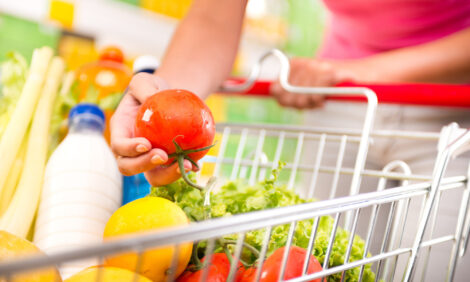



No Country for Uniform Gain in Dairy Products Post GST
INDIA - Indian dairies are staring at a mixed business during the upcoming festive season following the rollout of the uniform Goods and Services Tax (GST) across the country, which now makes certain products relatively expensive in the North and cheaper in the South.Ghee (a class of clarified butter that originated in India), which is a major product sold during festivities, had attracted a 5 per cent value-added tax (VAT) earlier in the North as against a 14.5 per cent VAT charged in the South.
Post GST rollout, ghee now attracts 12 per cent tax uniformly across the country , making Southern dairies gain marginally up to 2.5 per cent and Northern dairies suffer an additional tax burden of some 7 per cent.
According to industry representatives and analysts, ghee is the second-largest commodity product with a 15 per cent share in the diary sector after liquid milk, which accounts for a 65 per cent share. Further, nearly a third of the annual ghee sales is reported during the festive season.
The changed scenario post GST rollout has compelled some dairies to resort to increasing selling prices of ghee to cover up increased taxes, others decided to prune down their marketing budgets during festive season.
Kuldeep Saluja, MD of Sterling Agro, which sells dairy products under the Nova brand in the Northern markets, said: "The increase of 7 per cent in taxes on ghee due to GST has been a big setback to the business as sales have been impacted despite partial passing on the price burden while also taking a hit on our margins. And we expect this impact to continue during the up coming festive season."
Some analysts said dairies in the North, which are mainly into commodities or B2B segment, are likely to face the pressure on margins owing to increased tax on ghee. Also, there will be a slight impact on the retail side as well with moderate price increases.
"We will be reducing our marketing budget accordingly du ring the festive season to counter any impact of increase in taxation on ghee and other value-added products," said Devendra Shah, chairman and managing director of Mumbai-based Parag Milk Foods.
Dairies in the South like Heritage Foods and Hatsun Agro expect the impact to be either neutral or marginally positive. RG Chandramogan, CMD, Hatsun Agro, said: "We are expecting a neutral impact of GST on ghee sales as there will be a slight reduction in taxes, coupled with lower milk prices during the festive season due to higher production."
M Sambasiva Rao, the president of Hyderabad-based Heritage Foods, echoed similar views on the positive impact of GST rollout.
"Impact of GST on the dairy in dustry is expected to be neutral to positive in general," said Shiva Mudgil, senior analyst, Rabobank, adding that GST would further push formalisation of the sector at the expense of informal cash-dominated business channels, benefiting the organised segment.
"This will also impact the B2B trade business model of dairy commodity companies which relies on cash transactions e.g. for ghee. B2C branded ghee segment may see slight retail price increase for products like ghee in North India due to GST," Mr Mudgil said.
At present, India is the world's largest producer of milk, accounting for nearly a fifth of global milk production, followed by the US, China, Pakistan and Brazil, according to a report by brokerage firm Antique.
TheCattleSite News Desk


